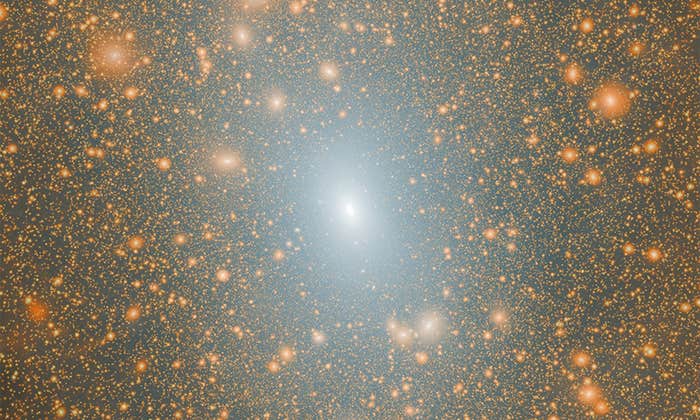When Samuel T. Wilkinson arrived at John Hopkins Medical School, in the late aughts, it was a bit of a culture shock. As a devout Mormon who had spent his undergraduate years at Brigham Young University, he found the secularism of his new fellow students off-putting. His coursework also required him to seriously consider humanity’s evolutionary origins, something that for many presents a challenge to religious faith. And yet, Wilkinson remained steadfast in his beliefs, even serving as an assistant to the local Mormon bishop while he completed his medical degree. Now a professor of psychiatry at Yale University, where he focuses on depression and suicide prevention, his faith remains undiminished.
In his new book Purpose: What Evolution and Human Nature Imply, Wilkinson (who also currently serves as a Church of Latter Day Saints bishop) recounts his medical school experience and argues that evolutionary theory is, in fact, theologically reaffirming: Natural selection, he asserts, is purposeful and guided, and provides both evidence for a creator and a moral system for humanity. Despite an admirable surfeit of earnestness in Wilkinson’s arguments, I did not find persuasive his claim that he would “reconcile scientific inquiry with a belief in a Divine Creator who is somehow responsible for the order we see around us.” As Ecclesiastes intones, “There is nothing new under the sun.” That aphorism would serve well as an epigraph to Purpose.
Wilkinson’s argument has much in common with other views that support a divine role in evolution, such as the anthropic principle or intelligent design, both of which are basically variations on the 18th-century “Watchmaker God.” This teleological argument claimed that because the natural world seemed to obey certain rules, as orderly as those that govern a watch, some “watchmaker” must have designed it. Because these arguments cannot be tested, they remain unscientific. Wilkinson slips into the same trap.
Rather than following just the evidence, he’s selecting agreeable facts to fit his faith.
For instance, Wilkinson makes much of convergent evolution—the process by which many marvelous adaptations, such as wings to fly, or eyes to see, arise in disparate beasts at different times—to suggest that something beyond Darwinian biological mechanisms are at work. He argues that “deeper forces and higher-order principles that guide organisms to independently develop similar structures and functions” imply the workings of a creator.
Yet evidence that evolution has independently landed on similar adaptive solutions in a wide array of distantly related species doesn’t suggest that God is nudging natural selection to go one way or another. Rather it shows that evolution isn’t a totally haphazard or chaotic process. Sure, a certain degree of randomness is built into evolution—the chance occurrences of catastrophic impacts and genetic mutations. But evolution also responds to the challenges organisms face in their environments through slow tinkering over generations, and often those challenges are the same ones for different creatures at different times. Pointing out that natural selection isn’t all random doesn’t necessarily make space for God, or a supernatural purpose.
Wilkinson also argues that the brutality inherent in evolution—predators adapt to better catch and kill their prey—doesn’t imply that God programmed it that way or undermine his divine commandment against murder. As a counterpoint, he gives examples of altruism in the animal kingdom to show that evolution also builds creatures capable of caring and self-sacrifice. But pointing out that altruism can evolve—via mechanisms like kin selection—does little to reconcile the barbarity of natural selection with a religious view of what constitutes sin.
Wilkinson does make one point that I am willing to concede: that a lack of belief in purpose can have detrimental individual and social effects. But Wilkinson goes beyond that, arguing that instilling a sense of purpose in biology itself might help his psychiatric patients combat depression. And yet, he doesn’t really grapple with what the word purpose means; nor, for that matter, does he give concepts as integral as meaning, transcendence, and enchantment enough attention. Regardless, the importance of purpose doesn’t further his argument that biology actually is divinely programmed.
The word “imply” in Wilkinson’s subtitle (“What Evolution and Human Nature Imply”) does all the heavy lifting on behalf of his thesis that evolution was simply God’s plan. Evolution might imply a divine plan to the author, but it hardly confirms, proves, or establishes the existence of God in any recognizably objective, empirical, scientific sense. In his 1802 book Natural Theology or Evidences of the Existence and Attributes of the Deity, the Christian philosopher William Paley made the case for the “Watchmaker God,” which has since suffered some 200 years of convincing arguments against its validity. Wilkinson’s argument bears more than a passing similarity to Paley’s. So it’s not that Purpose rests on shaky science—it’s built on anemic theology and pedestrian philosophy.
Consider what it means to posit, as Wilkinson does, that evolution, indeed the entire universe, is guided toward some coherent design. Something, then, is doing the guiding. If it is a divine being, then that divine being must either make the rules or follow the rules when it sets nature in motion. If he is simply following the rules, is this really any different than the way physics constrains what an engineer can build? Such a deity would differ not in kind but only in degree. He’s just us, but bigger, and it’s questionable whether that kind of god deserves genuflection—even whether such a being is really even God at all. Such a being is closer to what the 19th-century poet William Blake mocked as “Nobodaddy” rather than the sublime Ground of Being.
Of course, it’s entirely possible that Wilkinson’s right—that some divine being is guiding evolution—but if he is, it cannot be scientifically proven. Rather than following just the evidence, he’s selecting agreeable facts to fit his faith.
Purpose and meaning—how we understand what we’re living for—are among the most important issues that we must grapple with, but the teleological arguments Wilkinson recycles and dresses up with recent findings in biology and psychology don’t equip us to better take on that challenge. ![]()
Lead image: Julia Ardaran / Shutterstock




























